



Shaping the Future of
Your Business Together
We specialise in helping SMEs drive and deliver business growth. We do this through a combination of experience, insightful thinking, and jargon-free practical board support.
Learn more about WellmeadowLearn more about what we do and who we are.
Active HubSpot
Clients
Companies advised
at board level
Board/Strategy
meetings run
What do you need help with today?
Here are some of the common challenges we help our clients solve.
I want help running my family business
We've worked with loads of family businesses and understand the unique dynamics that exist in these companies.
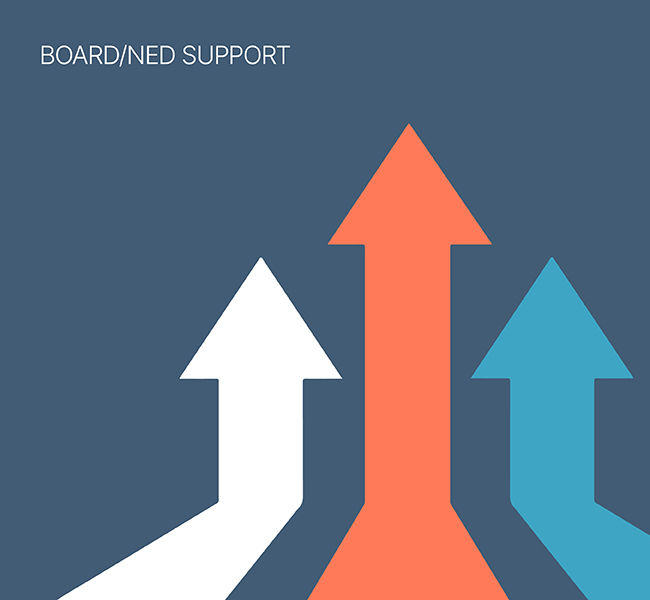
I'm looking for a NED to help our business
You're in the right place! Take a look a this page to get a better feel for how we approach NED work with our clients.

I've got growth pains and need some help
This is a good problem to have! That being said we understand how this feels and the potential step-change required in the way you run the business.

I want some joined up marketing & sales thinking
We can help add some intelectual horsepower to your marketing and sales operations. We're also HubSpot partners which we use to help manage RevOps.
Learn more about outsourced CMO and sales director support →
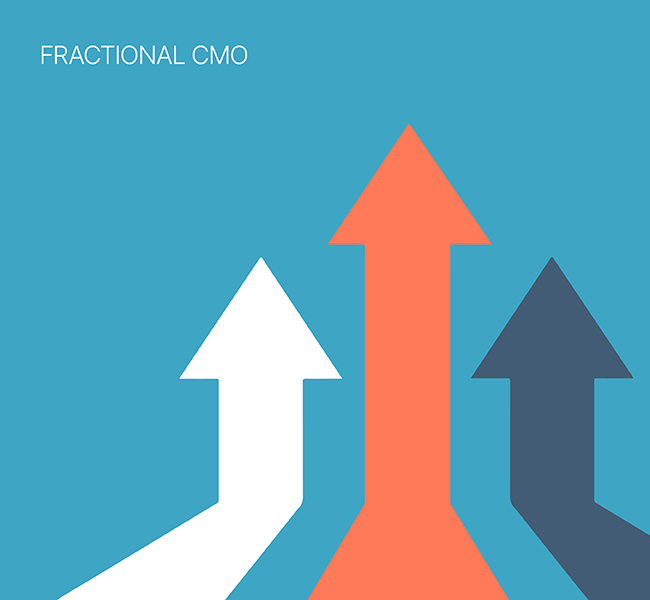
I need help with my vision & strategy
Firstly, well done for taking this seriously. It's often overlooked but it's a foundational piece of work for any business looking to grow.
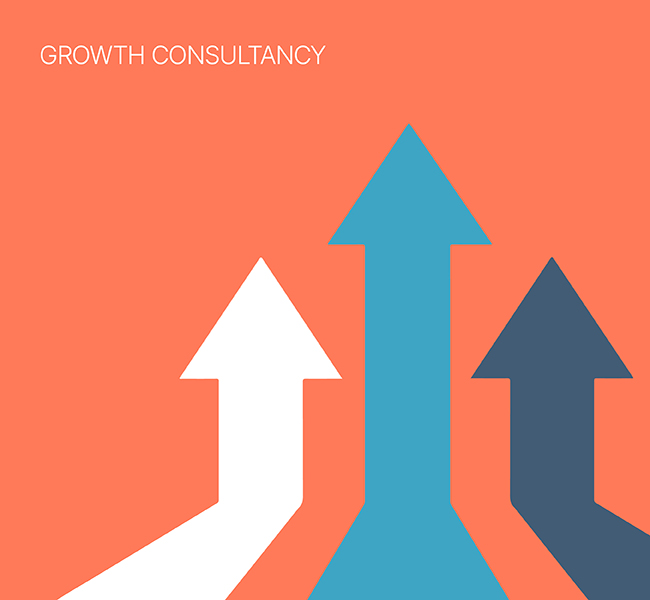
I'm looking for an outsourced CMO
We have helped numerous companies develop their marketing strategy. Our CMO support is data-driven with a focus on content strategy and lead generation.

I need help managing my sales strategy/team
An outsourced sales director can add value by helping set the sales strategy, advise on sales tech (to drive productivity), and help manage the team and KPIs.
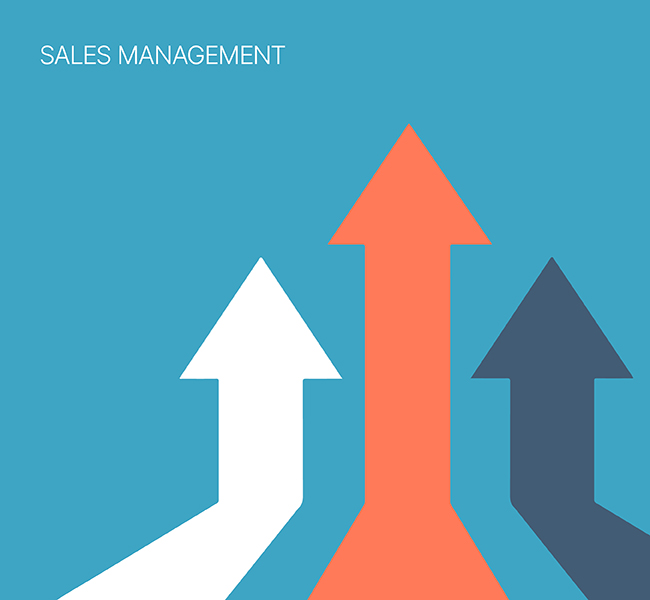
I need help thinking about my branding
If you want help developing your brand to take your business to the next level, we can help. From brand guidelines to investment memorandums, we've got you covered.

How can board support help drive growth?
Many forward thinking business owners value the contributions that an outside perspective can bring. We have worked with hundreds of business owners and senior leaders who wanted a critical friend.
Wellmeadow's board support encompasses areas such as governance, vision/strategy, and building the top team (in-house or outsourced) to help you make better decisions and get stuff done.
Our Recent Thinking
Learn more about what we've been working on and thinking about.
CASE STUDY
3X growth for UK manufacturer
Dalen is a British market leading designer & manufacturer with a number of strong brands present in the Education, Healthcare and Commercial sectors. The result of non-executive input to the team has been instrumental in supporting the internal team. Together, Dalen has grown to over 3x the size spanning several industry sectors and preparing the company for significant future growth.
EBOOK
The Good Board Meeting Guide
EBOOK
The Good Board Meeting Guide
Wellmeadow have chaired over 3,000 board meetings. We've condensed our learnings and insights from working with 100+ boards into a practical guide to help you run better board meetings.

BLOG
6 ways to make your board meetings shorter (but x2 productive)
BLOG
6 ways to make your board meetings shorter (but x2 productive)
Nobody wants to waste time in meetings that don't have structure or value-added outcomes. David Parry gives insights into how to achieve more effective board meetings in this Wellmeadow blog.

EBOOK
Building a Business Growth Engine
EBOOK
Building a Business Growth Engine
Take a deeper dive into the frameworks and tools we use to help our clients drive sustainable business growth. There's no magic bullets or shortcuts, just a few insights we've gathered along the way.

PODCAST
What Makes a Great Leader?
PODCAST
What Makes a Great Leader?
Listen to David Parry and Richard Buckle discuss research-backed findings on what makes a great leader. This episode was recorded as part of our weekly show, "The SME Growth Podcast".

What Our Clients Say
Don't just take it form us, here's what our clients have to say.
Wellmeadow have helped our small and growing company to excel in 2022 and 2023, providing board meetings and all levels of supporting information to manage our growth. If you are looking to seek help, to grow your business in a structured and managed way, then I highly recommend that you contact the team.
We have worked with Wellmeadow for over 10 years during which time they have given us unerring support and contributed massively to the strategic overview we now take of our business and customers. Whilst never breaching Chatham House rules, their experience brings a wider view of comparative businesses that adds great value to board meeting debates.
Wellmeadow used their content leveraging approach on our latest marketing campaign focussed on our giga casting processes. From a 25-minute interview, they were able to create over 100 pieces of marketing content including e-books, video, blogs, and social media. The campaign generated 80 leads in the first two weeks and continues to attract new contacts into our CRM.
NED/Board Support
We've helped over 100 companies at board level with their governance. Building your business on a solid foundation is critical for sustaining growth and planning for exits.
Growth means governance
Build your business on the right foundations
We understand that governance is not likely to have been at the top of your list when you had a dream to build a company. However, as you grow things become more complex and need a closer level of oversight. Whether it's reviewing cashflow forecasts, evaluating IMs, developing the senior team, or managing risk, growth means governance.
Getting the right advice, having a critical friend, providing access to a network of experts, is all part of the Wellmeadow experience.

Trusted by 100+ businesses





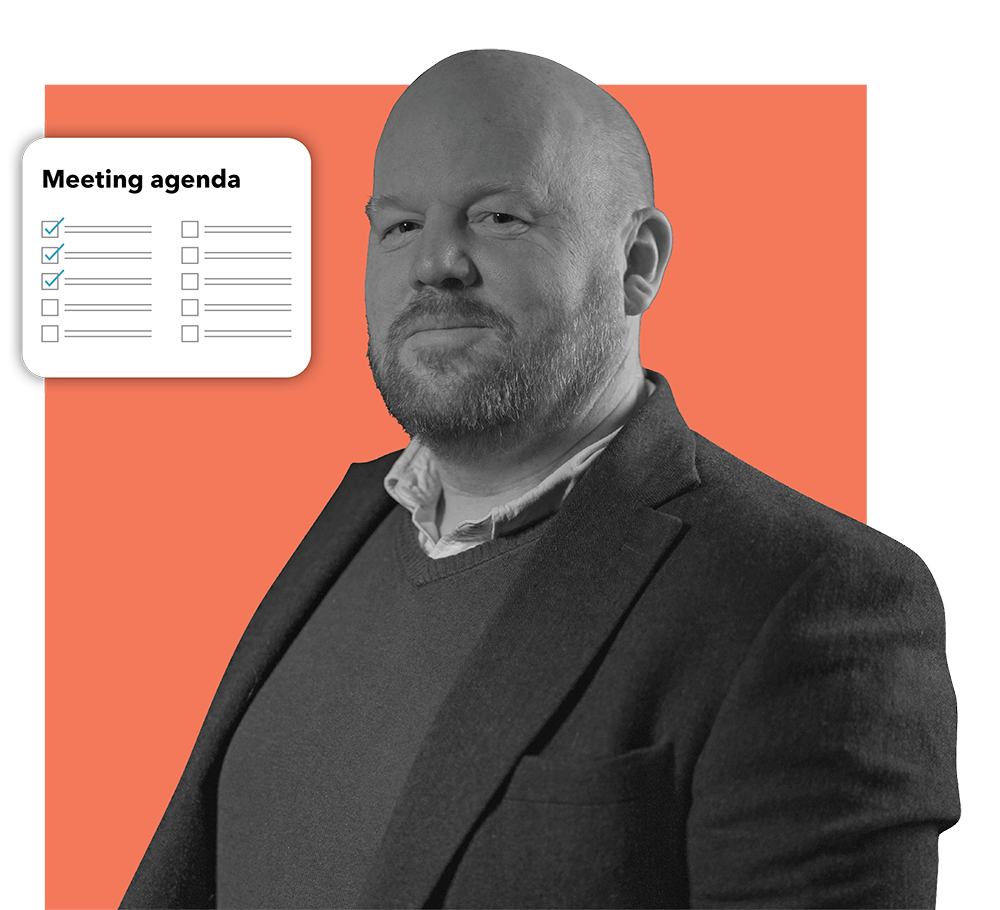
What does board support look like?
As business owners ourselves, we understand what the ups and downs of business life feel like. We also know that time and money are scarce resources. That's why our board support is action-led, jargon free, and time-tested.
-
1. Set up and chair regular board meetings
We've found that many SME businesses don't tend to have formal board meetings. The reasons for this can be a lack of time or simply that directors feel they know what's going from informal catch ups. We've found that many companies we've worked with have benefited from a regular, structured review of the company's performance - otherwise known as a board meeting. Wellmeadow can provide an experienced chairperson to help facilitate the meeting on your behalf.
-
2. Make your meetings more effective
We can help coach your top team to help them prepare and provide the right reports for your board meetings. If you're having a board meeting, then there is a legal duty on you to record all the decisions that were made. These typically take the form of board minutes. When Wellmeadow chair a board meeting, we take the minutes live in the meeting. Often we will project them onto a screen so that all attendees can see what is being recorded. At the end of the meeting, the minutes are sent to all attendees.
-
3. Drive action and accountability
Nobody wants to sit through ineffective meetings. We use our proprietary software to help track actions and hold the board to account. We are an action-focussed business by nature. Our team are on hand to help you "get stuff done" whether that is building a cashflow for investment, drafting a presentation, or helping to coach your senior team. Our skills are versatile. The depth and breadth of our experience allows us to input into a wide range of scenarios that growing businesses face.
-
4. Bring external perspective & access to networks
Having worked with over 100 SME companies over the past 10 years, we have a wealth of experience to draw on. Having an external advisor or non-executive on the team can help give you new perspectives. This provides a route into your business for fresh thinking and ideas. Many of our clients value the insights we are able to bring from other industries. Having been around a bit, we're able to bring these insights in a discrete manner without compromising on confidentiality.
Make Better Decisions
Running your business is about making decisions, from the day-to-day, to the strategic. We help you develop your team and your systems to drive better decision making to help your business grow.
Get Stuff Done
We are an action-orientated business. We can help you facilitate your board meetings to ensure they are action-focussed and accountable. We handle the board meeting admin so you can focus on the issues.
Increase Enterprise Value
When it comes time to exit your business, you want to maximise the value. To ensure smooth due diligence, we design process to manage risk, finances/funding, HR, plus a load more.
Developing a growth strategy mindset
For businesses looking to get serious about growth
Aligned to good governance is having a great strategy for growth. Sustainable growth requires a balance between opportunities (demand) and the people/capital/technology required to capitalise on them.
A growth strategy should identify the rate of growth, where the growth will be found (markets), and how the growth will be actioned (internal resources). Ultimately, it will be focussed on revenue (and profit) creation. Looking outwards, we help businesses with the process of identifying target markets, and mapping the buyers' journey (lead generation through to customer conversion and retention). Looking inwards, we help put the systems, technology, and people in place to make things happen. Typically, our board support service helps provide a metronome of progress towards the goal.
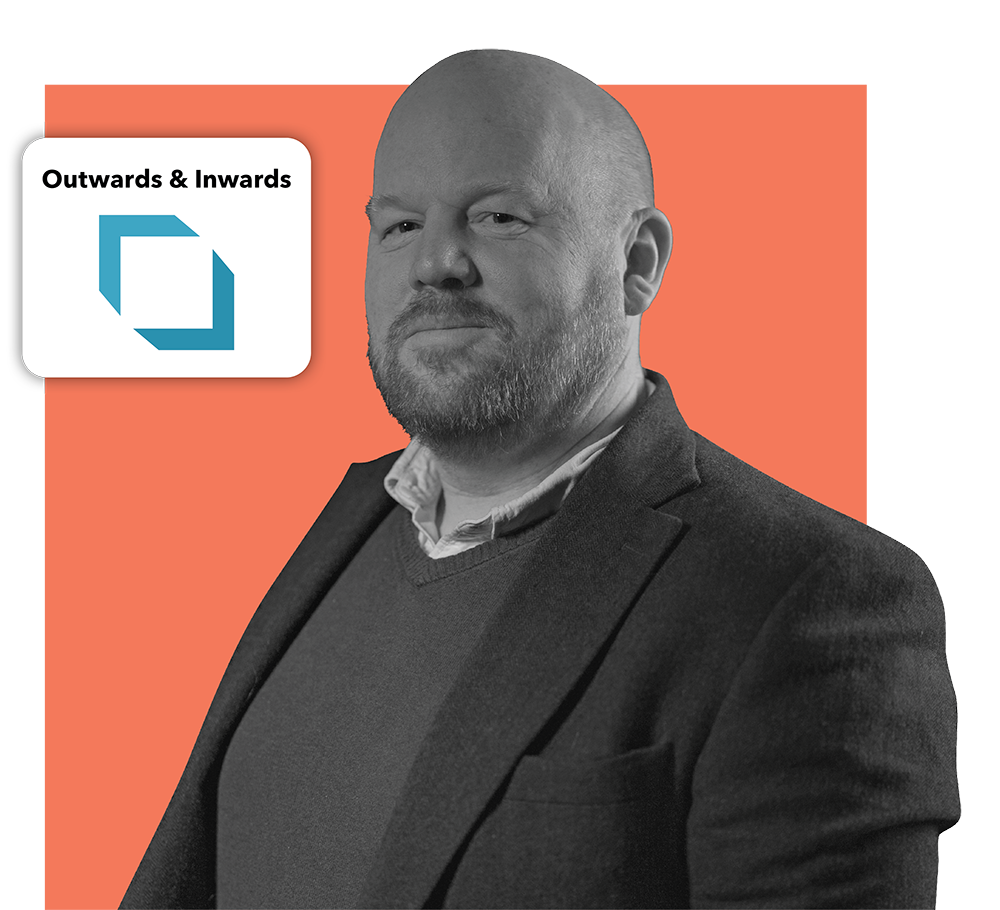

Our approach to growth strategy
In our experience, we've seen that companies that set out a deliberate strategy to grow, tend to do so. By stating intentions and putting in the groundwork, businesses better position themselves to drive growth or take advantage of opportunities when they come along.
-
1. Articulate the vision, develop the strategy
We want to start by making sure that we have a good understanding of your vision and growth strategy.
For vision setting we use the Collins-Porras method. This focuses on Values, Purpose, Big Hairy Arse Goals (BHAGs), and a Vivid Description of the future.
Strategy involves getting a really honest diagnostic of where things are today. This could include looking at the technology you use, the team, the culture, the systems, etc. From this diagnosis, we can then help map out a route (e.g. develop people, introduce new technology like HubSpot, make an acquisition) to move you towards your future goals.
It's important that we do this as it will inform much of the other growth work that we help you do.
-
2. Identify the growth opportunities
A core part of any growth strategy is understanding who your customers are and where your growth is going to come from.
There are a number of ways we help achieve this:
-
Market analysis
-
Competitor analysis
-
Deep customer insights including things like mapping the buyer journey, building buyer personas
-
Content audits
-
Content strategy
-
Marketing messages
-
Brand evaluation
All these things help to paint a picture of the competition and customers in any existing or target markets.
-
-
3. Identify the systems needed for growth
Any growth strategy has to be tempered with a degree of realism relating to the resources available to the business.
A growing company needs to identify the financial resources it may need for capital purchases, working capital, debt/equity options, etc.
It also need to focus on the people who will help make the growth a reality. Things like recruitment, training and development, retention strategies, all need to be considered.
The right technology needs to be in place to help scale the business. As HubSpot partners we naturally gravitate to this platform as a solution for managing customer data, sales & marketing, customer service and increasingly operations.
A business also needs the right systems in place to help it grow.
Wellmeadow can advise on all of these areas and help bring in additional resources to help catalyse your growth strategy.
-
4. Measuring and monitoring the growth
A growth strategy involves experimenting, learning, and adapting. Most often, things don't quite go to plan or new, unforeseen opportunities arise. You need to have the tools, metrics, and monitoring process in place to help you make good decisions, quickly.
We use tools such as HubSpot, Databox, Hunter, SEMrush plus a load of others, to make sure the information you need is available. We constantly review this data (with you) to make sure we can monitor what's happening with your growth activities.
Part of our process is to agree goals and KPIs with you at the start of the process. We can then benchmark performance against these metrics.
Our monthly board support can also help ensure a regular cadence of reviews happens. We help keep the focus on the future whilst monitoring the present.
Interested in working with us?
Our board support/NED services are based on a fixed-fee monthly retainer. Growth consultancy support can be tailored your unique requirements.
Most Popular
Monthly Board Support
For businesses wanting to start/upgrade board meetings and governance on a regular basis.
£2.5k
per month
If you don't currently run formal board meetings or if you feel your existing meetings need more structure, this could be for you.
Monthly board support provides:
-
Chairing a monthly board meeting
-
Assistance with circulation of agendas and board papers before the meeting
-
Review of papers, KPIs, financial data in order to contribute to the commentary
-
Support for board members who are new or need guidance in the role of being a company director.
-
Ad-hoc advice (via phone/online) between meetings
-
90-day rolling contract
Growth Consultancy
Designed for businesses who need more intensive support for a shorter period
£5k
per month
If you are looking to kick-start or re-focus your business growth strategy we can help by offering research-backed insights and practical support.
Growth Consultancy support provides:
-
Development of the vision of the business.
-
Strategy development (workshop facilitation)
-
Sales & Marketing strategy alignment
-
Evaluation of RevOps using the Wellmeadow Growth Generator framework
-
Evaluation of sales & marketing technology
-
Identification of any growth constraints (alongside a plan to address these)
-
Review of growth business model & financial modelling.
-
Establish growth goals, metric, and KPI
-
Project duration typically 3-4 months.
-
Board support can follow on.
Frequently Asked Questions
Here you can find some of the most common questions we receive.
-
What are the basic requirements of a board meeting?
Purpose
A Board Meeting is a meeting of the directors of a company. The Institute of Directors defines the role of the board as follows:
-
establishing vision, mission and values
-
setting strategy and structure
-
delegating to management
-
exercising accountability to shareholders, and;
-
being responsible to relevant stakeholders
Companies also have regular meetings of the Senior Management Team to review day to day performance. In small and medium sized businesses, this is often the same group of people so the purpose of the meetings can be combined. There is however a risk that the discussions gets very detailed and the strategic view is lost. A balance therefore has to be struck, and this calls for a well-designed agenda and a good meeting facilitator or chairperson.
“We meet enough anyway”
It is possible that the same top team do meet regularly anyway, but there is no substitute for an opportunity to step back, take stock and review things formally.
Who Should Attend?
You should make sure you have all the key people in attendance so that effective decisions can be taken with all perspectives heard, but without having so many people that the meeting lasts too long, and consensus decisions are hard to reach. A good guide is 5-10 people.
For a board meeting, there will be a legal minimum number of directors required, which is called ‘quorum’ (the meeting is then ‘quorate’).
This number is often defined in the Company’s Articles of Association. As owner of the business, you should know this number as technically any decisions taken with fewer than this can be challenged as invalid and the directors could be held liable.
Meeting Frequency
Monthly is the most common. There may be special purpose meetings in between, but as this is the typical frequency of management information (such as the accounts) being produced, it makes sense to have the same frequency. This is also long enough for strategic actions to have progressed and be worth reviewing. If your company is in a very stable position with only one or two directors, then you might consider less frequently – but ideally at least quarterly.
Meeting Length
You are going to need at least a couple of hours to review all the aspects of the company, and probably longer for most businesses. A full agenda with several topics needing to be covered in depth could easily take up 4 hours or more. This needs careful time management and it’s worth putting in regular breaks to keep attention levels up.
Timing
We find that most meetings take place in the 2nd or 3rd week of the month. Mornings definitely have higher energy levels but can get in the way of other regular meetings. Try not to hold board meetings in the evenings or weekends; it is an important function of the board and is ‘part of the day job’ – not an optional extra.
-
-
What are my directors' duties?
As a director of a limited company, whether you like it or not, you've got to abide by your directors' duties.
The Companies Act 2006 sets out the general duties of directors, which are:
-
to act within powers in accordance with the company’s constitution and to use those powers only for the purposes for which they were conferred
-
to promote the success of the company for the benefit of its members
-
to exercise independent judgement
-
to exercise reasonable care, skill and diligence
-
to avoid conflicts of interest
-
not to accept benefits from third parties
-
to declare an interest in a proposed transaction or arrangement
For more information visit the Institute of Directors website.
-
-
How can an external perspective help my board?
When you use an external advisor such as Wellmeadow, you can get a range of benefits.
You may want to tap into the expertise of a Non-executive Director to help with a specific business function (e.g. finance, sales, marketing). You may also want to access the networks of your external advisors to help with business growth.
At Wellmeadow, as we work with a number of companies at any one time, we are able to help cross-pollinate ideas between businesses. Of course, we maintain confidentiality however many business share common challenges (i.e. dealing with WFH) but approach them very differently.
External advisors may also be able to step back and see things a little clearer. This is especially important when issues arise between share -
What if I'm the only director?
That's no problem. We have worked with a number of businesses where there is only one owner or director. We can still bring all the benefits of our board support to help support your company.
-
What are the common issues you see with growing businesses?
There are a number of common issues that companies experience whilst growing.
- Staying aligned with the vision (having a vision in the first place to align to!)
- Keeping on track with the strategy to grow the business.
- Building the team - getting the right people in the right places at the right time.
- Owners being able to let go.
- Managing cash
- Funding requirements
- Forecasting the growth
- Maintaining work/life balance.
We've seen it all before many times, so if anything resonates, let's talk.
Vision & Strategy Support
If you're not sure where you're going then you probably won't get there. We can help you see the future and chart a course to get there.
A vision embodies your values, and inspires your future
"Without a vision, the people perish"
This ancient proverb rings true today. Creating a vision and developing the strategy are the jobs of the leaders. Most leaders within an SME business context spend less than 5% of their time thinking about the "big picture" stuff. However, it's a critical part of the role of leadership.
Over the years we've used the "Collins-Porras" vision model. In brief it looks at who you are as a business (Values & Purpose) and where you want to be (Big Hairy Arse Goals & a Vivid Description of the future). By taking the time to understand these elements of the vision, it becomes easier to articulate and communicate. It also helps guide other aspects of your business particularly areas such as recruitment.

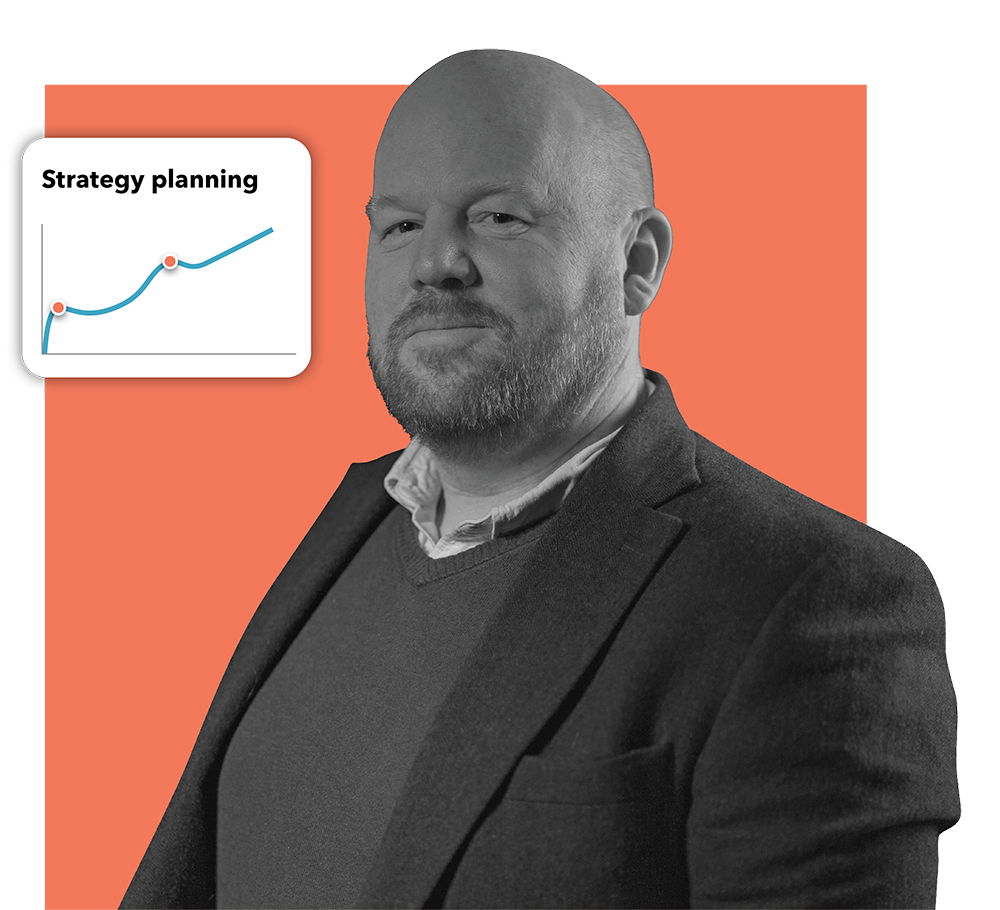
If vision = destination, then strategy = how we get there...
Once you've got your vision sorted, you need a plan to achieve it. We are not interested in developing strategic plans that sit in a draw collecting dust. We can help you build an action-focussed plan to get you where you need to be.
-
1. Develop your vision
There's a load of different approaches to coming up with a vision. Over the years we've used a few but have settled on the Collins-Porras model. We use this framework to help you define you values and purpose. These are the elements that make up your organisational DNA. We then look at your BHAGS (Big, hairy audacious goals) and help you paint a picture of what the future looks like when the BHAG is achieved.
-
2. Facilitate a strategy workshop
Whether it's a traditional SWOT analysis or looking at "where to play and how to win", we can help you define your strategy. This isn't about going through the motions or ticking boxes. We want to help you get deep insights so that you're able to diagnose "what's going on around here?". With an understanding of your current situation, we can help you identify how to build a path to your envisioned future.
-
3. Build a strategic plan
Forget the 200-page report that gathers dust in a drawer. We help companies build strategic plans that are based in reality, with robust guiding principles, and coherent action plans. From the strategy workshop we'll have an indication of "what's going on around here". We then help you define the guiding principles - the values or rules that will direct your decision making. We then help you formulate a coherent action plan. This action plan is designed to be reviewed in a monthly board meeting to help keep things on track. We can also help with financial modelling and business planning, to help make the strategic plan as robust as possible.
-
4. Communicate the message
Having gone to all the effort to create a vision and design the strategy (and strategic plan), it needs to be communicated. You might be envisaging a poster on the wall with the company values on. We'd only recommend doing that if you're actually living the values. There are loads of different ways we can help you communicate your messages to employees, investors, banks, etc. We use our creative team to produce videos, animations, podcasts, or even posters (if you really want them!). We help you craft the messages so that the tone and delivery are right for your business.
Complexity, simplified...
How does having a clear vision and strategy help my business?
Talk to many business people and the idea of "vision" or "strategy" conjures up images of sitting in a meeting room staring at a flipchart, or sticking post-it notes on the wall.
However, a clear vision and strategy are the foundations that successful businesses are built on. They guide and direct the decisions that are made such as investment and the type of people you recruit. Values and purpose (which are a critical part of the vision) influence everything from marketing messages, to how profits are spent. Taking the time to get it right, pays dividends in the long run.

Wellmeadow are a fantastic consultancy to work with. Their range of knowledge and experience in every aspect of business development and relationships is outstanding and they are a pleasure to deal with.
Frequently Asked Questions
Here you can find some of the most common questions we receive.
-
How do you come up with a vision?
Jim Collins and Jerry Porras evaluated thousands of companies in their work on creating a vision. They found that successful companies often had a very clear vision of where they were going.
They broke this vision down into two sections; a core ideology and an envisioned future.
The core ideology consists of values and purpose and effectively makes up the DNA of the business.
The core values can be thought of as the values that would still exist in the business even if it wasn't profitable. It's the way you behave when it hurts or when no-one is looking. Core values don't tend to change, they are intrinsic to your business.
The core purpose is the reason why your business exists. It the reason why people may join your organisation. The key here is to be honest and authentic. Don't make out you're trying to save the planet if you're not.
The envisioned future is the description of the future state of the business. It's made up of the BHAG (Big Hairy Audacious Goal) and a vivid description.
The BHAG is the statement of intent as to where the business wants to get to in 15-20 years. It's a moon shot. It should be believable but only just achievable.
The vivid description is the picture of what the future looks like. Think number of staff, office location, technology developed, staff benefits offered, new markets, etc., etc.
-
Do I really need a vision?
The short answer is you don't. Your business could well be successful without one
However, having a clearly articulated vision will help you align the plans for your business. It will help with everything from your recruitment to your investment or exit plans. Additionally, in today's workforce, many people like to know why they are showing up to work (which can help with recruitment/retention). -
This all sounds like management speak!
Yes, we admit there is a bit of that.
However, we try to keep our advice as jargon free as possible. Most people don't care what an Ansoff Matrix is but they are interested in knowing if they can sell their existing products to new markets. Or, more simple still, selling the same stuff to different people 😜 -
What are the common issues with vision & strategy?
-
Not having a vision
-
Not having a strategy
-
Infrequent reviews leading to lack of action and/or traction
-
Lack of capable people to deliver the plan
-
-
Have you got any tips for developing a vision?
Here's a good starter for ten...
Values
Write down a list of values that represent your organisation. Test them out on your colleagues. Refine them over a few weeks. Are they authentic? They shouldn't be aspirational (that's something for a vivid description). You probably want 3-5 values that truly represent what you stand for.
Purpose
Why was the company founded? What are you trying to achieve? What makes your company unique?
BHAG
What could you achieve over a 10-20 year period? Is it stretching? Is it measurable? How would you define success?
Vivid Description
How would you describe what the business looks like when the BHAG has been achieved? Compare things to existing world-class companies e.g. "we want to be as innovative as Apple". This helps people make a mental connection. Link elements of the vivid description to a KPI. For example, if your vision is to be an employer of choice, you could measure retention, recruitment costs, etc.
Outsourced CMO
Want the benefits and expertise of a CMO (Chief Marketing Officer) but don't have the budget/appetite to do so? Why not try an outsourced fractional CMO - all the experience at a fraction of the cost.
Unlock your growth potential
Save up to 75% of the cost of a full-time CMO
Hire a fractional CMO to help accelerate your business growth. It's estimated that c-suite execs spend about 20% of their time adding value. Why pay for the other 80% especially when you've got all the other costs associated with scaling a business.
The average CMO salary is circa £150k. Outsourcing the CMO role is a great opportunity for SMEs to access expertise at a fraction of that cost (about 25%). For scale-ups, it's a great way to de-risk this role until you're ready for a full-time person.


Do more with less
A fractional CMO combines experience and expertise with a flexible, economical solution for companies looking for marketing leadership. A fractional CMO can help develop your marketing strategy, manage the team, and ensure agreed outputs are achieved and results are delivered.
-
Improve brand awareness
A fractional CMO can significantly enhance an SME's brand awareness by crafting and executing a bespoke, data-driven marketing strategy. Leveraging deep expertise, they identify the unique value proposition of a business. They identify target customer segments, deploying targeted campaigns across optimal channels to raise the businesses profile. They can work with your internal team to optimise SEO, engage in social media marketing, and utilise content marketing, to elevate your business' visibility and reputation.
-
Develop the content strategy
By identifying the target customer segments, buyer personas, and analysing what happens a each stage of the buyers' journey, a fractional CMO can help develop a content strategy.
-
Drive lead generation activities
Wellmeadow uses it's Growth Generator framework to help businesses identify where it should focus its lead generation activities.
A fractional CMO can help a business oversee this aspect of RevOps analysis. They will quickly analyse the data to identify opportunities to optimise lead generation activities.
-
Manage conversion rate optimisation
Taking a data-driven approach combined with creative insights, a fractional CMO can help you get more "bang for your buck".
This could be through working with ads specialists to ensure CPC rates are optimised. Additionally, working with web developers and marketing to manage landing page designs, they will oversee the drive to optimise conversion rates.
-
Oversee sales enablement & alignment
A fractional CMO will often get involved from a strategic viewpoint on how marketing and sales should work together.
Listening to the sales team to get insights into customer behaviour, pain points, and new product ideas are things that a CMO gets involved with.
-
Develop customer retention strategies
A business will grow if it can win customers and keep them. Developing customer retention policies, procedures, and initiatives is where a fractional CMO can help add value.
Things such as client advisory boards, customer interviews, and CRM analysis can all be utilised by a CMO to get insights into your customers' experiences. These can be feed back into marketing and sales teams to help drive future growth.
-
Manage marketing metrics & ROI
A CMO can help you measure and monitor your marketing effectiveness.
Measure such as ROI, lifetime customer value, cost of acquisition, channel effectiveness measures are all important metrics to understand.
The CMO can help bring these metrics into board discussion and offer suggestions for where investment should be made with respect to marketing activities.
Reduce Expense
Pay a fraction of the cost of a full-time CMO and get the same expertise and experience. It also puts this expertise in the reach of many SMEs.
Cross-Client Pollination
Get the benefit of working with experts who have clients in a variety of industries. Work with people who have seen what works elsewhere and can adapt it to your context.
Increased Flexibility
Use a CMO for a day a month, three days a week, or even full-time on a fixed term contract. You're in control of the amount of time, budget, and scope of the projects.
Build with the best...
Why Wellmeadow CMOs chose to use HubSpot.
There are plenty of options to chose from when it comes to picking a CRM. HubSpot is our CRM partner of choice as its combination of advanced functionality and ease-of-use makes it one of the best solutions on the market.
Whilst we never insist that our clients use HubSpot, we do feel that it offers many benefits for scaling companies. From granular insights, to big picture dashboards, HubSpot gives you the tools to take your marketing to the next level. If you'd like to fine out more about how it can help book a demo below.

Frequently Asked Questions
Here you can find some of the most common questions we receive.
-
What does a CMO do?
A Chief Marketing Officer (CMO) plays a crucial role in any business, serving as the executive responsible for developing and implementing marketing strategies to drive growth and increase brand awareness. Here are key functions of a CMO:
Strategy Development: They create comprehensive marketing strategies that align with the company's goals, focusing on market research, product marketing, marketing communications, and advertising.
Brand Management: CMOs oversee the development and management of the brand's identity, ensuring consistency across all marketing channels and touchpoints.
Customer Engagement: They devise and implement strategies for engaging with customers across various platforms, enhancing customer experience and loyalty.
Market Research: Conducting market research to identify trends, understand customer needs, and analyse competitors to inform strategic decisions.
Digital Marketing: Overseeing digital marketing efforts, including social media, SEO/SEM, and content marketing, to ensure they meet the company's objectives.
Collaboration: Collaborating with other departments (e.g., sales, product development) to ensure that marketing strategies are integrated and support overall business goals.
Performance Analysis: Measuring the effectiveness of marketing campaigns and initiatives, using data analytics to drive decisions and improve ROI.
Ultimately, the CMO is responsible for the organization's marketing performance, driving revenue through successful marketing for the entire business. -
What's the difference between a fractional CMO and a full-time CMO?
A fractional CMO and a full-time CMO both fulfil the chief marketing role, but they differ significantly in terms of engagement and focus.
Engagement and Time Commitment: A full-time CMO is employed exclusively by one company, typically working 40+ hours a week. In contrast, a fractional CMO works for a company on a part-time or contract basis, often serving several clients simultaneously. This model allows smaller companies access to senior marketing expertise without the full-time expense.
Scope and Focus: Full-time CMOs are deeply involved in the company's day-to-day operations and long-term strategy. They are integral to the executive team, shaping overall business strategies. Fractional CMOs, however, are usually hired to address specific strategic needs, such as developing a marketing strategy, entering new markets, or launching new products, and may not be as involved in daily operations.
Strategy vs. Day-to-Day Activities: Statistics on how CMOs allocate their time vary widely by industry and company size. However, a common challenge for full-time CMOs is balancing strategic planning with managing day-to-day marketing activities. Studies suggest that CMOs wish to spend more time on strategic initiatives but often find themselves caught up in operational tasks. On average, full-time CMOs may aim to dedicate at least 30-40% of their time to strategic planning and development, but in practice, this can be significantly less due to the demands of managing ongoing marketing operations and immediate business needs.
Fractional CMOs, given their part-time nature, might spend a higher proportion of their time (often 50% or more) on strategy, as their role is typically designed to focus on high-impact areas where strategic oversight can drive significant value. -
What sort of background should a CMO have?
A Chief Marketing Officer (CMO) will most likely have a background that combines formal education, such as a bachelor's or master's degree in marketing, business administration, or a related field, with extensive professional experience in marketing and leadership roles.
They should possess a deep understanding of various marketing channels and strategies, including digital marketing, brand management, market research, and customer engagement. Additionally, a successful CMO typically has a proven track record of developing and executing marketing strategies that drive growth and enhance brand visibility. Strong leadership, analytical, and communication skills are essential, as is the ability to adapt to rapidly changing market trends and consumer behaviors.
-
How "hands on" is a CMO?
How "hands-on" a CMO is can really depend on the size and stage of the company they're working for. In smaller companies or startups, a CMO might be very hands-on, diving into daily marketing activities, brainstorming sessions, and even creating content or running social media campaigns themselves. They might be directly involved in a wide range of tasks from strategic planning to executing marketing tactics.
In larger businesses, a CMO's role is likely more strategic and less hands-on in terms of day-to-day marketing activities. They'll focus on big-picture planning, guiding the marketing direction, setting budgets, and overseeing various department heads who manage the nitty-gritty details. However, a successful CMO in any setting needs to have a strong grasp of the details of their campaigns and initiatives, ensuring their team's work aligns with the overall business goals. They should be capable of stepping in and getting their hands dirty when needed, but their main role is to lead and inspire their teams, make strategic decisions, and communicate effectively with other executives and stakeholders.
Outsourced Sales Director
Designed for businesses who don't have a sales director but want help shaping the sales team.
Add extra horsepower to your sales efforts
Drive top-line growth with a part-time sales director
Sales is typically one of the roles that is best done in-house. However, we have seen that as as a business scales, so does the demands on the sales team, particularly at the strategic level. Using an outsourced sales director allows companies to leverage the extensive experience and expertise of seasoned professionals without the commitment and overhead associated with a full-time executive position.
Whether it's on a part-time or project basis, an outsourced sales director can help shape strategy, set up sales process, and help manage the team. This can all be achieved with a significant amount of flexibility, giving you expert, strategic sales support at a fraction of the cost of a full-time hire.
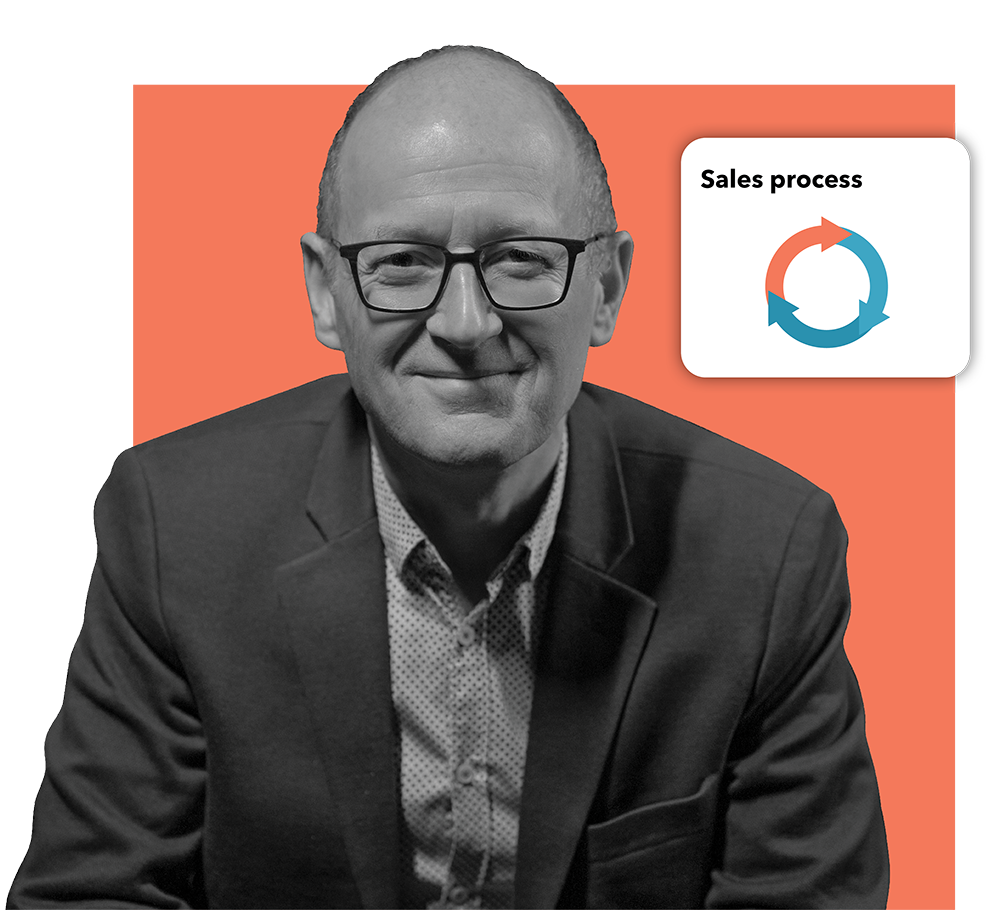

The benefits of an external perspective
Whether you're looking to plug a gap whilst you find a full-time person, or if you just need some part-time, support to help you scale, here's some of the benefits of having an experienced, external viewpoint as part of the team.
-
Access to expertise and experience
An outsourced sales director brings a wealth of knowledge and experience accumulated from working across various industries and markets. For an SME, this means having access to proven strategies and insights that can be pivotal in navigating competitive landscapes. This expertise enables the development of a robust sales strategy that aligns with the company's goals, identifies new market opportunities, and avoids common pitfalls. Essentially, it's like having a shortcut to best practices and innovative approaches that might otherwise take years to discover and implement.
-
Cost-effectiveness
Hiring a full-time sales director involves significant financial commitments, including salary, benefits, and potential training costs. For SMEs, where budget efficiency is crucial, outsourcing offers a way to gain high-level sales leadership without the full-time expense. This arrangement allows businesses to invest more in other critical areas such as product development, marketing, and customer service. Moreover, it provides the flexibility to scale sales efforts up or down based on market conditions and business needs, ensuring that spending on sales leadership is always aligned with current business priorities.
-
Objective perspective and fresh ideas
Being external to the business, an outsourced sales director can offer an unbiased view of the business's sales processes, strategies, and team performance. This objectivity helps in identifying issues that internal stakeholders may overlook due to familiarity or inherent biases. They can introduce fresh ideas and innovative sales tactics that have been successful elsewhere, which can invigorate stale strategies and propel the business forward. This fresh perspective can be invaluable in challenging the status quo and fostering a culture of continuous improvement and adaptation.
-
Rapid implementation and scalability
SMEs often need to respond swiftly to market changes to remain competitive. An outsourced sales director can quickly adapt strategies and processes to meet evolving market demands. They are adept at identifying and implementing quick wins to boost sales performance in the short term while also building and scaling sales operations to drive sustainable long-term growth. This agility allows SMEs to capitalise on opportunities faster than competitors and adjust their sales force size and strategy as the business grows or as market conditions change, without the delays associated with hiring or restructuring internal teams.
HubSpot helps manage sales teams
HubSpot Sales Hub challenges the outdated "do more, sell more" strategy. It provides integrated tools and sales insights to boost productivity and strengthen customer relationships.
As a HubSpot partner, Wellmeadow regularly uses Sales Hub to help businesses manage their sales teams This approach represents a shift towards efficient, insight-driven sales processes.
-
Help your team manage prospecting activity
Initiate meaningful, personalised conversations using HubSpot's sales engagement tools and seamlessly turn leads into customers.
Eliminate the need for guesswork and maintain a streamlined, organised approach for your sales team, allowing them to focus on cultivating a successful, high-converting sales pipeline.
-
Use professional expertise & powerful AI to drive sales
Accelerate deal closure with HubSpot's advanced AI-driven tools for managing deals, optimising your sales process for a seamless transition from qualified leads to closed-won opportunities. Enhance the customer journey with consistency and empower your sales team with valuable data and insights to strategically prioritise deals for maximum success.
-
Manage what you measure (HubSpot has great reporting)
Achieve your revenue targets with precision using HubSpot’s cutting-edge reporting and analytics tools. Forecast revenue accurately and gain insight into your pipeline for enhanced visibility and predictability.
Monitor your team's progress and dissect customer feedback with conversation intelligence to uncover competitive insights, process improvements, and opportunities for valuable coaching.

Branding Strategy
Your branding expresses who you are and what you stand for to the world. Making sure that it reflects the business you want to be is a core part of a wider growth strategy.
It's all about sME!
Branding isn't just about logos; SMEs need to invest in a strong brand
In short, branding is not a luxury for SMEs; it's a strategic tool that drives visibility, loyalty, profitability, and simplicity in decision-making.
By investing in a brand that reflects their values, vision, and unique selling points, SMEs can carve out a competitive edge that propels them to new heights. Don't just be another business; be a brand that your customers love and competitors envy.
Your brand is also going to have a significant impact on your recruitment prospects. Making sure that your brand resonates with the team you need to grow your business is just as critical to your strategy as attracting new customers.


Our approach to SME branding...
As experts in branding we focus on elevating SME businesses from mere logos to standout brands. Our approach is meticulous and transformative. We guide you through a four-step process designed to clearly understand your value proposition and project it powerfully into the marketplace. Here’s how we do it:
-
1. Discovery & Insights gathering
The journey begins with deep discovery. We dive into understanding your business’s core—your mission, vision, values, and the unique value proposition that sets you apart. This phase involves stakeholder interviews, market research, and competitor analysis. Our goal is to gather rich insights that form the bedrock of your brand.
-
2. Strategy development
Armed with insights, we craft a bespoke branding strategy. This roadmap outlines how we'll position your brand in the market, your brand personality, voice, and the emotional experience we want to evoke in your customers. This strategic framework ensures every branding element we develop is aligned and purposeful, aimed at capturing the essence of your business and resonating with your target audience.
-
3. Design & Creative execution
With a strategy in place, we bring your brand to life through design. This goes beyond the logo; we develop a comprehensive visual identity system—colours, typography, imagery style—and apply it across all touchpoints. From packaging to digital experiences, we ensure consistency and distinctiveness, creating a cohesive brand experience that stands out.
-
4. Implementation & brand (re)launch
The final step is to introduce your refreshed brand to the world. We support you in rolling out your new identity, from updating your digital presence to launching marketing campaigns that tell your brand story. But it doesn’t end there; we equip you with guidelines and tools to maintain brand consistency and continue building brand equity over time.




